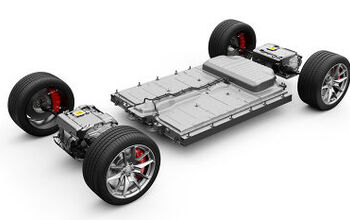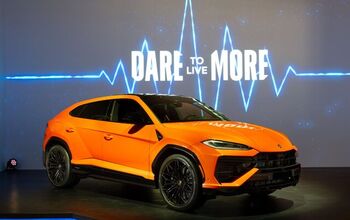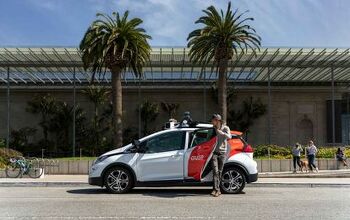Reshuffling The Stacks: Volkswagen Bets On Hybrids While Toyota Thinks Hydrogen Is A Winner

Volkswagen has been tinkering with hydrogen for longer than I can remember. Yesterday, CEO Martin Winterkorn said it was all for naught. Hydrogen fuel cells are unlikely to become a cost-effective way to power cars in the near future, Winterkorn told Automotive News at Volkswagen’s press conference in Wolfsburg. He said it’s not Volkswagen’s fault:
“I do not see the infrastructure for fuel cell vehicles, and I do not see how hydrogen can be produced on large scale at reasonable cost. I do not currently see a situation where we can offer fuel cell vehicles at a reasonable cost that consumers would also be willing to pay.”
Automotive News takes that as an indicator that VW won’t join a list of global automakers that want to roll out fuel cell vehicles in the 2015-2020 time-frame, among them Toyota allied with BMW, a Nissan-Renault-Daimler-Ford alliance, Hyundai, Honda, and more.
Instead, VW is seen to embark on a somewhat belated diesel plug-in hybrid strategy, while hybrid pioneer Toyota does not have a problem envisaging fuel cell vehicles at a reasonable cost. Two years ago already, Toyota’s chief engineer Satoshi Ogiso told TTAC that an affordable hydrogen-powered car in this decade is “his job.”

Bertel Schmitt comes back to journalism after taking a 35 year break in advertising and marketing. He ran and owned advertising agencies in Duesseldorf, Germany, and New York City. Volkswagen A.G. was Bertel's most important corporate account. Schmitt's advertising and marketing career touched many corners of the industry with a special focus on automotive products and services. Since 2004, he lives in Japan and China with his wife <a href="http://www.tomokoandbertel.com"> Tomoko </a>. Bertel Schmitt is a founding board member of the <a href="http://www.offshoresuperseries.com"> Offshore Super Series </a>, an American offshore powerboat racing organization. He is co-owner of the racing team Typhoon.
More by Bertel Schmitt


































Comments
Join the conversation
Let's look at the BIG PICTURE: Japan has just announced (a few days ago) that they have successfully extracted methane hydrates from its waters and turned it into natural gas: http://www.bbc.co.uk/news/business-21752441 Its a project Japan has been working on for a long time, they plan to fully commercialize it in 2018, and large scale production within the next decade. With methane hydrates Japan will have 90 years worth of natural gas. Natural gas can be converted to hydrogen with 80% efficiency. Meaning hydrogen will be one of the only natural resources that resource-poor Japan will be able to produce domestically. Hydrogen will energy-Independence for countries with a lot of natural gas (soon to be Japan).
HFCs sound nice but I bet it would cost $1 Trillion to replace our current liquid fuel infrastructure. Hell, I'd have to drive 50 miles today to refuel a Honda Civic CNG vehicle.
I have some experience designing a storage and distribution system for hydrogen gas. This stuff is both extremely dangerous and difficult to contain. The molecule is the smallest of any, and will get through even the best seal if everything isn't perfect. When it does, it is the the most flammable and explosive gas. The range of concentrations in air that will explode is very wide (about 5% to 80%, from memory) as compared to natural gas (methane). When it burns, the flame is colorless. You can walk into it without seeing the flame. The industry literature recommends approaching the equipment with a corn broom ahead of you as a warning device. The safest way to store it is in liquid form, which requires cryogenic temperatures. Then there is the issue of generating the hydrogen... Hydrogen is used where nothing else does the job. The system I worked on was for an electric generator for a major power plant. The hydrogen is used to cool the generator and is (supposedly) kept away from air. In spite of all the precautions and safety systems used, there have been generator fires. These fires are highly destructive and impossible to put out until the hydrogen supply is cut off. Winterkorn is right. This technology is a non-starter as a vehicle fuel and doesn't deserve any funding by anyone.
Oh the Humanities!!!